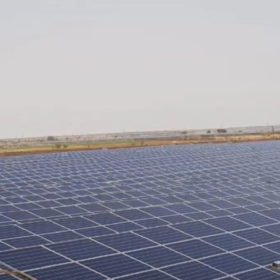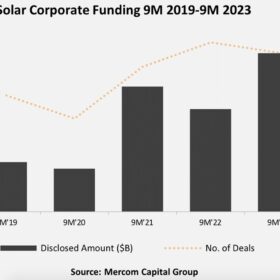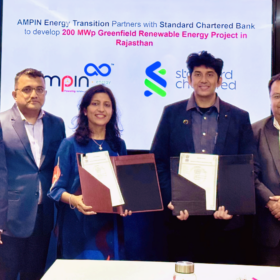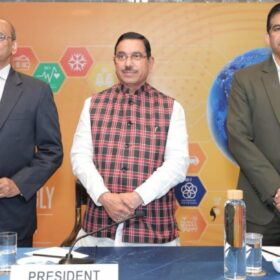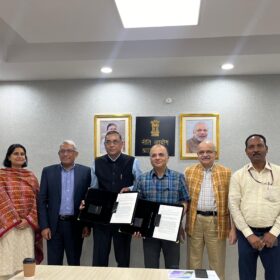NTPC allocates 976 MW solar at an average price of $0.030/kWh
Mahindra Susten, Rays Power Infra, Refex Green, ReNew Solar and SAEL have emerged winners in NTPC’s auction for 1.2 GW of interstate transmission system (ISTS) connected solar capacity.
Off-grid vs on-grid solar systems: Choosing the right solar solution for you
Both off-grid and on-grid solar systems have their unique benefits and challenges. Assessing your specific energy requirements, location, and budget will help you choose the right solar solution to harness the power of the sun effectively.
JSW Energy secures PPAs for 1.2 GW solar-wind hybrid capacity with MSEDCL
JSW Energy Ltd has secured 25-year power purchase agreements with Maharashtra State Electricity Distribution Co. Ltd for two solar-wind hybrid projects of 600 MW each.
The Hydrogen Stream: Airox Nigen becomes India’s first company to establish over 80 hydrogen generation plants
Airox Nigen Equipments, a turnkey solution provider for green hydrogen production, has announced the execution of over 80+ hydrogen generation plants across India, becoming the first company in the country to achieve this milestone. The company targets to reach 100 hydrogen plants by 2025.
Prozeal Green Energy wins solar-plus-storage project in Leh
Prozeal Green Energy has won Solar Energy Corp. of India’s tender for 25 MW AC solar plant with 20 MW/50 MWh battery energy storage system in Leh.
Global corporate funding in solar sector down 23% so far this year
Total corporate funding in the solar industry reached $22.3 billion in the first nine months of 2024, down 23% year on year. Mercom Capital Group says global uncertainties are affecting investor confidence, but an increase in debt financing and resilience in newly announced large-scale project funding are bright spots for the sector.
AMPIN Energy Transition reaches financial close on 200 MWp solar wind hybrid project in Rajasthan
AMPIN Energy Transition has secured green loan from Standard Chartered Bank for its 200 MWp solar wind hybrid project in Rajasthan.
Leaders from 120 member countries to attend Seventh Session of International Solar Alliance Assembly in New Delhi
The Seventh Session of the International Solar Alliance (ISA) Assembly, to be held in New Delhi from Nov. 3-6, will deliberate on ISA initiatives to improve energy access, security and transition among its member countries.
GEAPP, NITI Aayog partner to advance sustainable development
Global Energy Alliance for People and Planet (GEAPP) and NITI Aayog have partnered to support Indian states in developing comprehensive energy transition plans, focusing on sustainable policies, innovative business models, and the adoption of clean energy solutions.
Will COP29 push the world toward real climate action?
As the world looks to COP29, the stakes have never been higher. Climate finance, energy transitions, biodiversity, adaptation, and carbon markets—each of these issues represents a critical piece of the puzzle in the fight against climate change. Azerbaijan, as host, faces the daunting challenge of balancing competing interests while pushing for ambitious global action.
